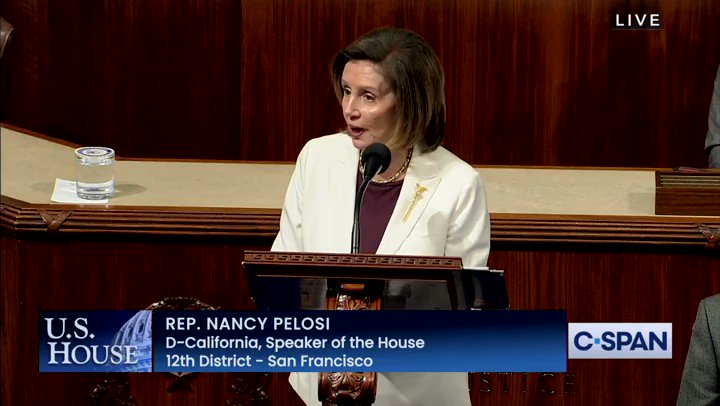At The Spectator, I write on how Nancy Pelosi just won’t go away.
House Speaker Nancy Pelosi announced today that in the wake of Republicans taking the House, she’s doing exactly what the octogenarian leadership class in this era of American decline does every time voters invite them to gracefully leave the stage: hold onto power.
The decision by Pelosi to not seek election as leader of the Democratic minority, choosing instead to stay on as a kind of speaker emeritus, means she will be effectively looking over the shoulder of her successor, be that Hakeem Jeffries or another unfortunate soul. She’s Democratic Speaker for Life in all but name. She will be feted by a sycophantic media, which will glorify her and build her up, even as she overshadows the people actually tasked with running Congress. But then, that’s mostly just the media anyway.
An 82-year-old insisting it is too early for her to retire would be insulting if it wasn’t so common. Pelosi was the oldest speaker of the House, serving alongside Joe Biden, the oldest president in American history, and the oldest Senate minority leader in history in Mitch McConnell. Without Chuck Schumer’s intervention, we might have had a 90-year-old senator in the presidential line of succession. It is a decrepit leadership class out of step with the times and the priorities of the American people.
At The Free Beacon, Andrew Ferguson writes:
"We have to pass the bill," she said, "so you can find out what’s in it."
The sentence belongs on her monument, if she gets one. It was her answer to complaints that the ACA, as it quivered its way by peristalsis through the lower intestines of congressional subcommittees and closed-door mark-ups, had grown too cumbersome, too complicated for ordinary people to comprehend its effects or even its intentions.
She chose to answer the complaint by agreeing with it—and adding an implicit shrug: "What d’ya expect?"
The remark was so honest and transparent and true—"saying the quiet part out loud," we’d call it today—that her publicists in the press quickly tried to explain it away. Pelosi, they said, was merely making a point about the tide of public opinion, which ran against the ACA: Only when the bill had become law could the mass of little people be dazzled by the glories revealed within, and then change their opinion of it, from skepticism to gratitude.
But that explanation never stuck. With a single stroke, a mere 14 words, Pelosi summarized and exposed decades of congressional decrepitude, and moreover identified herself as a satisfied creature of it. The reflexive secrecy, the grandiosity, the servility to parochial interests, the endless longueurs that lulled the public to sleep, followed by blind, frenetic fits of legislative activity before the public’s attention could be roused—she was at once the master of this broken system and its servant, utterly complacent, utterly uninterested in its reform. Her party was rewarded in the next election with a group defenestration, losing their majority and 63 seats.
Keep reading with a 7-day free trial
Subscribe to The Transom to keep reading this post and get 7 days of free access to the full post archives.




